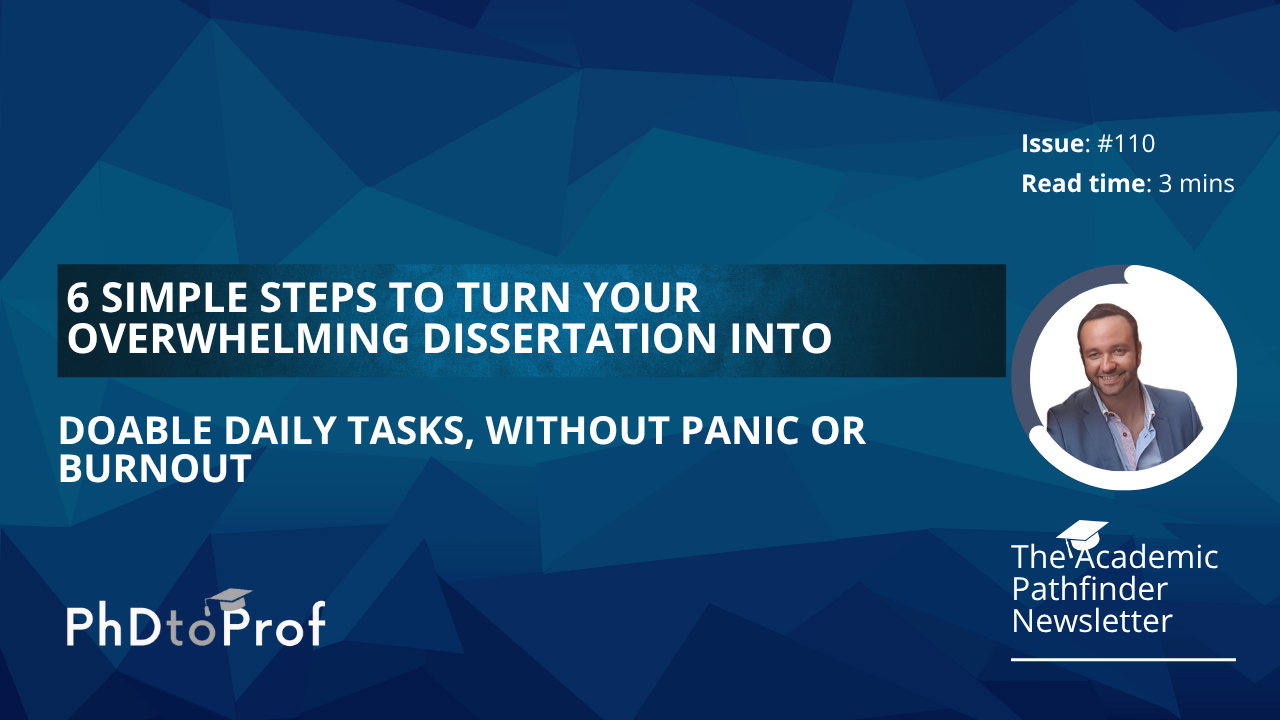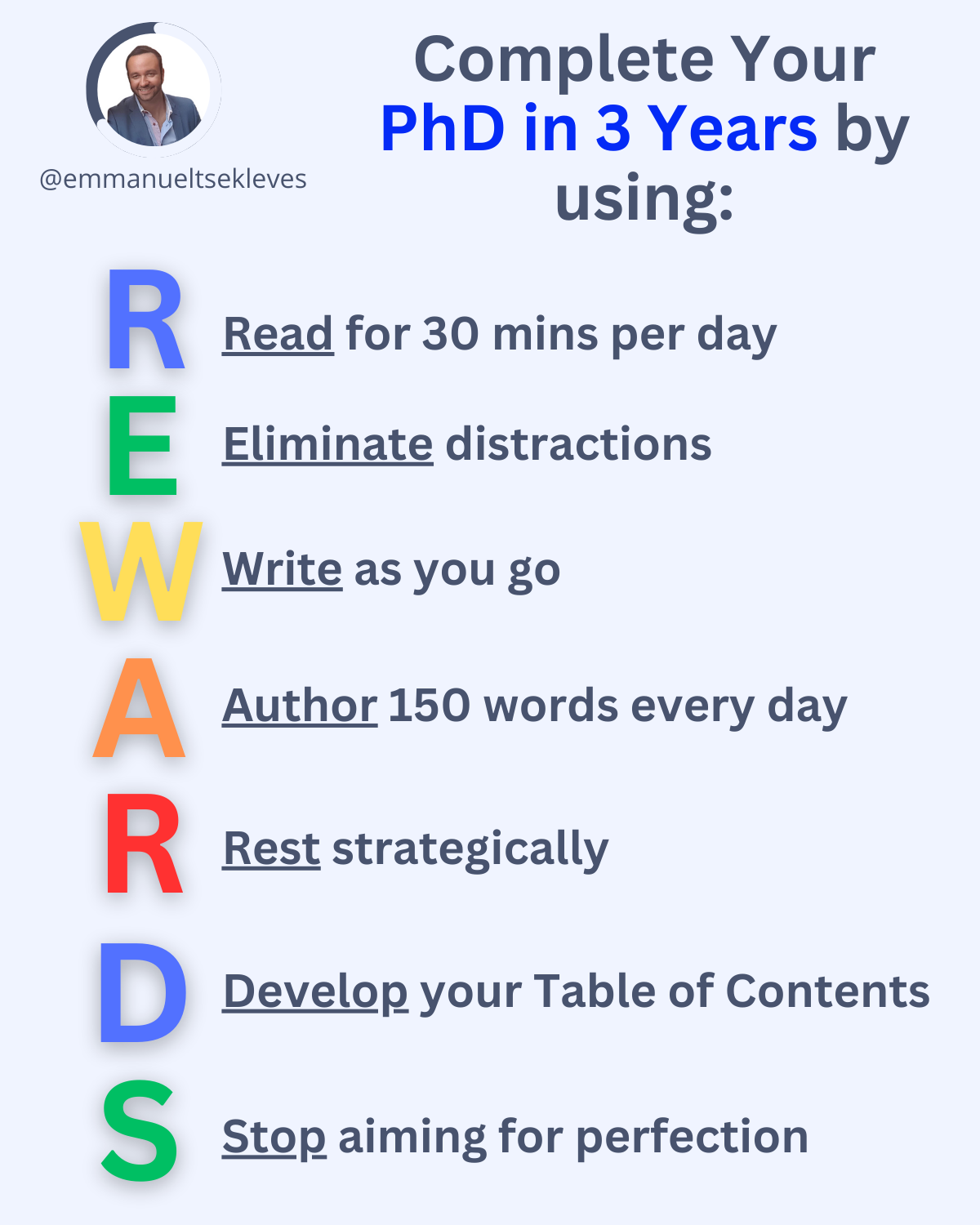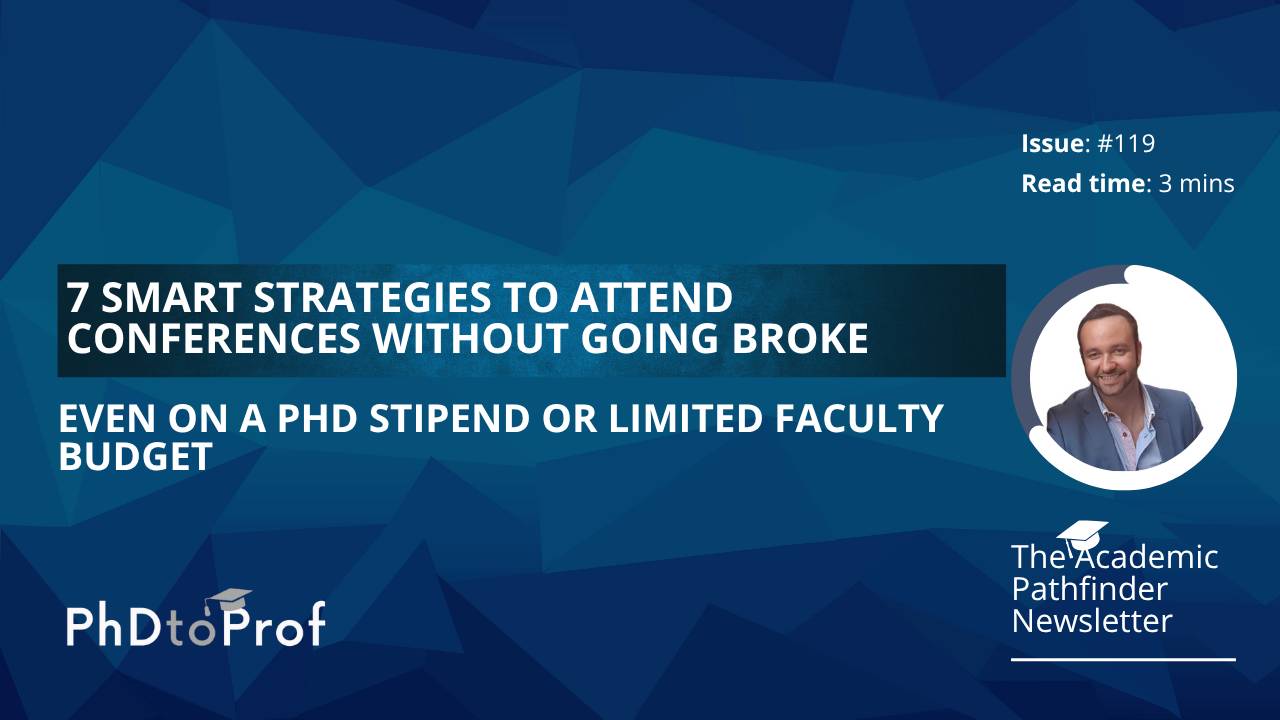#110 - 6 Simple Steps to Turn Your Overwhelming Dissertation Into Doable Daily Tasks (Without Panic or Burnout)

Today, I'm sharing the exact roadmap system that helped me break down my dissertation into daily actions, complete my PhD in three and a half years, and avoid the mental breakdowns that derail many PhD students
20 August 2025
Read time: 3 minutes
Get Expert Paper Feedback in Minutes with PaperCheck AI
Stop waiting weeks for supervisor feedback that may never come. PaperCheck AI acts as your personal AI paper supervisor, delivering comprehensive manuscript reviews in just 5 minutes - analyzing everything from argument structure and methodology to citations and grammar.
Transform your draft into a publication-ready paper with detailed feedback on abstracts, logical consistency, and comprehensive proofreading that catches errors before submission.
Try PaperCheck AI today and get the expert feedback you deserve, when you need it. Get 15% discount with my code: phdtoprof15
Staring at the thought of writing 200+ pages for your dissertation can feel paralyzing.
Most PhD students get stuck in the "how do I even start?" phase, procrastinating for weeks while anxiety builds.
The secret that successful PhD graduates know?
A dissertation isn't one massive project, it's dozens of small, manageable tasks completed systematically.
Today, I'm sharing the exact roadmap system that helped me break down my dissertation into daily actions, complete my PhD in three and a half years, and avoid the mental breakdowns that derail many PhD students.

During my first year of PhD studies, I spent three months avoiding my dissertation proposal because the task felt impossibly huge.
Every time I sat down to work, I'd get overwhelmed thinking about everything I needed to accomplish and end up browsing social media instead.
The breakthrough came when my advisor taught me to think in terms of tiny, specific milestones rather than the final product.
This system transformed my approach completely.
Instead of dreading dissertation work, I started looking forward to checking off daily accomplishments that steadily built toward my degree.
Step #1: Map Your Dissertation Architecture First
Most students start writing without a clear structural plan, leading to confusion and wasted effort later.
How to do it: Create a simple outline showing your dissertation's main sections:
- introduction,
- literature review,
- methodology,
- results chapters,
- and conclusion.
Under each section, list 3-5 specific topics you'll cover. Don't worry about perfect organization yet, just get the basic structure visible.
This architectural view helps you see the dissertation as separate, manageable chunks rather than one overwhelming monster.
Step #2: Break Each Chapter Into Weekly Mini-Projects
A chapter feels huge, but weekly projects feel doable. Transform each chapter into 4-6 weekly goals.
How to do it: Take your first chapter and divide it into weekly chunks based on content, not page count.
For example, Week 1 might be "research background theories," Week 2 could be "summarize key studies," and Week 3 might focus on "identify research gaps."
Each weekly project should have a clear, specific outcome you can complete in 20-25 hours of focused work.
Step #3: Create Daily Task Lists That Build Momentum
Weekly projects still feel abstract. Daily tasks create concrete progress you can actually accomplish.
How to do it: At the start of each week, break your weekly project into five specific daily tasks.
Make each task small enough to complete in 2-4 hours.
Focus on actions rather than outcomes. Instead of "work on literature review," write "read and summarize three papers on X topic."
Successful daily tasks should feel slightly challenging but totally achievable with focused effort.
Step #4: Set Up Progress Tracking That Motivates You
Seeing progress accumulate builds momentum and confidence during the long dissertation journey.
How to do it: Create a simple tracking system that makes progress visible.
This could be a calendar where you check off completed days, a spreadsheet tracking weekly goals, or a physical chart on your wall.
Choose something you'll actually use and update regularly.
Track input (tasks completed) rather than output (pages written) since you control your effort more than your productivity.
Step #5: Build in Recovery and Flexibility Time
Dissertation progress isn't linear. Plan for setbacks, revisions, and unexpected complications from the beginning.
How to do it: Add 25% extra time to every timeline you create.
If you think a chapter will take eight weeks, plan for ten.
Schedule one "catch-up" week per month where you can complete delayed tasks or handle unexpected problems.
This buffer time prevents small delays from creating massive stress and keeps you on track long-term.
Step #6: Create Milestone Celebrations That Sustain Motivation
Dissertation work can feel endless without regular recognition of progress and achievements.
How to do it: Plan specific celebrations for completing major milestones.
This might be a nice dinner after finishing a chapter, a weekend trip after defending your proposal, or a small gift after completing data collection.
Make celebrations proportional to the achievement and something you genuinely look forward to earning.
The Weekly Planning Ritual
Success with this system requires consistent weekly planning sessions to maintain momentum and adjust course when needed.
How to do it: Every Sunday, spend 30 minutes reviewing your progress from the previous week and planning the coming week's tasks.
Adjust timelines if needed, celebrate completed milestones, and prepare mentally for the week ahead.
This weekly ritual keeps you connected to your larger goals while maintaining focus on immediate next steps.

Key Takeaways:
- Break everything into weekly mini-projects that feel achievable rather than overwhelming
- Focus on daily task completion rather than page counts or writing productivity
- Build in 25% buffer time for inevitable setbacks and revisions
→ Your Action Plan for This Week
- Create a basic architectural outline of your dissertation showing main sections and topics
- Break your next chapter into 4-6 weekly projects with specific outcomes
- Set up a simple progress tracking system you'll actually use consistently
What's your biggest challenge with dissertation planning and motivation? Reply and share your specific struggles!
Well, that’s it for today.
See you next week.
Whenever you're ready, there are 3 ways I can help you:
1. Get free actionable tips on how to secure a tenure-track job in academia by following me on X, LinkedIn me Instagram and BlueSky
2. Take my proven Academic Job Accelerator Program that has helped hundreds of researchers secure academic positions, and start with my free training videos to learn the exact strategies hiring committees respond to.
3. If you're ready to take your PhD application journey to the next level, join my PhD Application and Scholarship Masterclass. Click the link below to learn more and secure your spot.




Responses